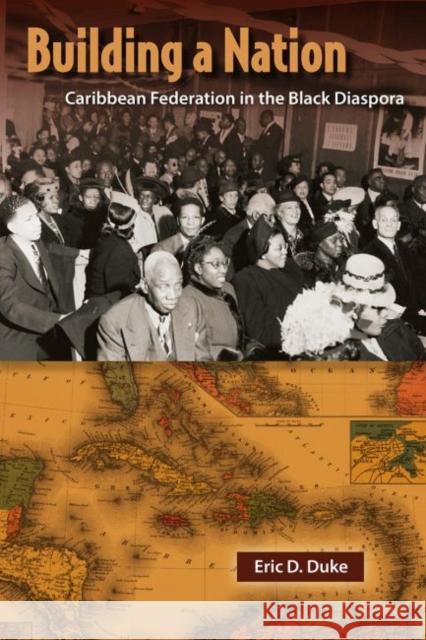Building a Nation: Caribbean Federation in the Black Diaspora » książka
Building a Nation: Caribbean Federation in the Black Diaspora
ISBN-13: 9780813060231 / Angielski / Twarda / 2015 / 320 str.
Building a Nation: Caribbean Federation in the Black Diaspora
ISBN-13: 9780813060231 / Angielski / Twarda / 2015 / 320 str.
(netto: 315,25 VAT: 5%)
Najniższa cena z 30 dni: 330,33
ok. 22 dni roboczych.
Darmowa dostawa!
Remarkable, impressive. Duke makes a double contribution to historical scholarship: to the historiography of federalism in the Caribbean and to the historiography of political dissent, activism, and solidarity within Caribbean diaspora Winston James, author of Holding Aloft the Banner of Ethiopia: Caribbean Radicalism in Early Twentieth-Century America
This well-researched and accessible book deepens our understanding of early twentieth-century West Indian political culture and transnational mobilization. April Mayes, author of The Mulatto Republic: Class, Race, and Dominican National Identity
The initial push for a federation among British Caribbean colonies might have originated among colonial officials and white elites, but the banner for federation was quickly picked up by Afro-Caribbean activists who saw in the possibility of a united West Indian nation a means of securing political power and more.
In Building a Nation, Eric Duke moves beyond the narrow view of federation as only relevant to Caribbean and British imperial histories. By examining support for federation among many Afro-Caribbean and other black activists in and out of the West Indies, Duke convincingly expands and connects the movement s history squarely into the wider history of political and social activism in the early to mid-twentieth century black diaspora.
Exploring the relationships between the pursuit of Caribbean federation and black diaspora politics, Duke convincingly posits that federation was more than a regional endeavor; it was a diasporic, black nation-building undertaking with broad support in diaspora centers such as Harlem and London deeply immersed in ideas of racial unity, racial uplift, and black self-determination.
"











